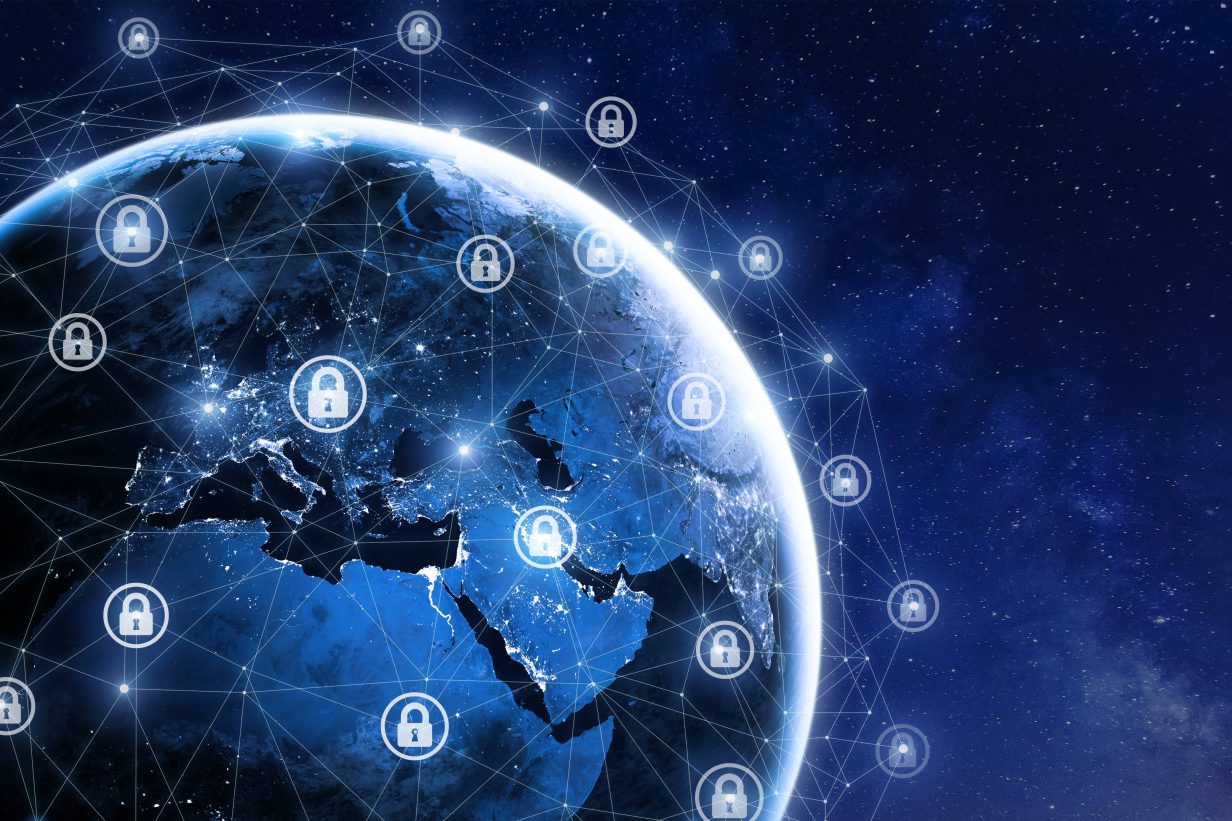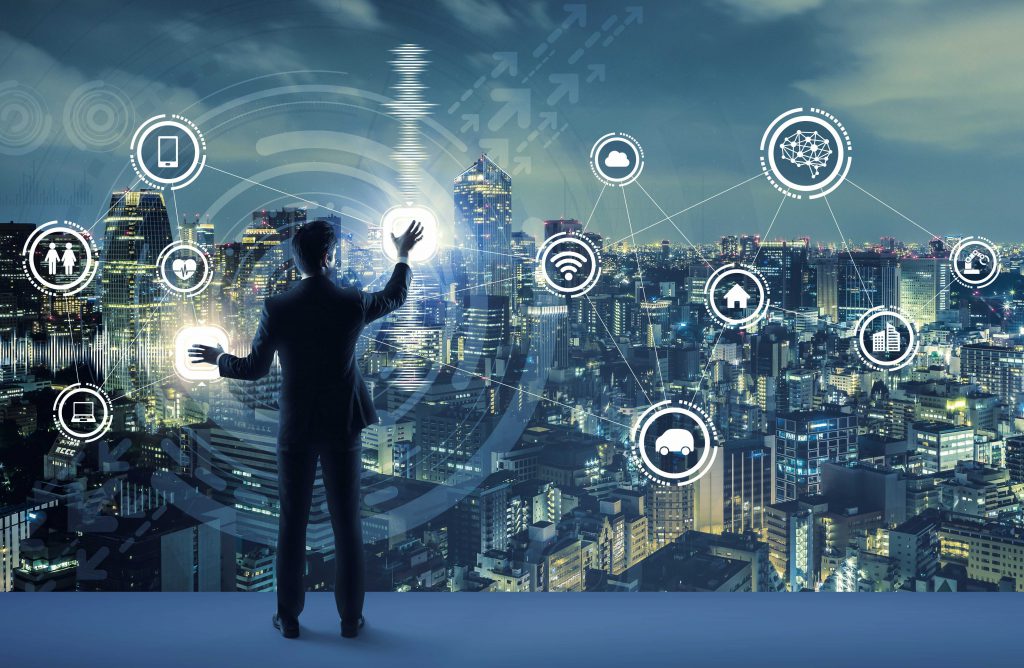
1.6 What is Blockchain used for?
1.5 What can Blockchains do? highlighted the key characteristics of this technology, giving you an opportunity to start thinking about where you could adopt Blockchain in your daily life. However, if that wasn’t enough and you are still struggling to understand where this advanced technology could be used, we are going to take you through some of the most popular real-life scenarios to illustrate where and how Blockchain is benefitting, or could benefit people across the globe. Before we get into the different examples, it is worth noting that the finance industry has seen the most use from this technology so far (with the well discussed Bitcoin), but it is anticipated that it will/can be used across almost every industry and a few of our examples below start to show how this is already developing in different areas.
Supply Chains
First, for many businesses, Blockchain could support/replace their current supply chain management. Trading with an efficient supply chain is imperative to determine the success of most brands. Coordinating the handling of goods across all stakeholders can be a complex process, however Blockchain allows businesses to remove any paper-based methods currently in place and creates a transparent database that is always available and clearly identifies any inefficiencies within the supply chain, whilst being able to track all movement of goods in real time. Furthermore, as companies adopt Blockchain within their supply chain systems, it will be easier to store additional information they may not be collecting currently. Blockchain will allow businesses to store additional important details including the place of origin for the ingredients that make up their products and the completed product themselves, right to the moment they get into the hands of the retailer and potentially the consumer.
Gaming
A huge percentage of the population spend time engaging with games, and this includes the hardcore gamers but right down to the leisure gamers who spend hours on Candy Crush but wouldn’t quite classify themselves as a ‘Gamer’. Either way, anyone who is gaming, is currently controlled by the servers of the individual companies that run the different games we are playing. However, this does mean that with the current set up, there is no real ownership for the individuals and your assets in the individual games are restricted to each title. But, Blockchain could change all that and users could take ownership of their own assets (in the form of fungible/non-fungible tokens) and consequently have the ability to transfer your possessions between different games.
Healthcare
A hot topic at the moment is the NHS and all healthcare departments in every country, who we continually applause and show our gratitude towards. But from a Blockchain perspective, there is a lot that this technology could offer this industry, even if it is slowly improving and moving away from their historic patient paper records. Blockchain could be the answer to a simpler, easy to use and secure way for everyone to store their medical details. Many people will be aware of the frustrations you experience when visiting a different hospital or clinic across your healthcare provider and not having your medical records available or waiting for them to be sent over, and this would be the first issue Blockchain could resolve. Furthermore, the central servers at all the individual sites are a vulnerable and hackable device that are at risk of being attacked by offenders. Therefore, Blockchain can again be the answer to protect individual’s sensitive data, guaranteeing security for all patients and strengthen the HIPAA laws. Whilst still having the ease of access for any institutions and professionals who are granted access by individuals, as Blockchain also allows patients to be in control of all their files and information.
The Internet of Things
The volume of devices connected to the Internet of Things (IoT) network continues to grow and is also predicted to excel further in the coming years. Our current central servers that are collecting the data and analysing the input to support the feedback gained, are gradually going to limit the efficiency of this process. Blockchain technology can be implemented to allow the IoT system to perform at a much faster rate whilst also guaranteeing a secure and reliable platform. Furthermore, as the information involved in this practice can be quite valuable and important, Blockchain ensures users cant override any of the information for their own benefits and it’s our ‘smart contracts’ that we discussed in an earlier blog that guarantee this level of security.

Remittance
As mentioned earlier, the finance sector has already been disrupted by Blockchain and it is clear from the benefits gained why. Traditional banking has always had its faults, but the transferring over money (in particular international transactions), has been a problematic process for many years. However, even after many updates and changes to smooth the transaction between two individuals, Blockchain can offer a much greater solution. Eliminating the middlemen from the ecosystem, you are freeing yourself of any fees the financial institutions may charge, whilst also saving on the settlement time it takes for the banks to process your transaction. Blockchain can be the answer to reliable, urgent and direct transactions between two individuals that will eliminate all the past and current issues we currently experience when trying to transfer funds.
Digital Identities
We may live in a digital world, but what we do lack is a digital identity. Our passports or ID cards are all physical assets that we have to be responsible for. All these physical assets we own that identify us can easily be misplaced, stolen or copied, making it relatively easy for people to commit fraudulent crimes at the expense of our vulnerabilities. Furthermore, not everyone has access to the current options available, for a number of reasons (including the price of purchase). But Blockchain could again change all of this, and each individual could have a ‘self-sovereign identity’ connected to themselves with all their relevant information. With a secure system, personal information could be revealed at relevant times and to relevant third parties, whilst ensuring privacy from the rest of the world.
Governance
Governments, locally, nationally and internationally struggle with a level of transparency that many citizens would believe is acceptable. Rules and regulations across different areas are currently implemented through individual networks, whereas a Blockchain network would flip this on its head and offer a transparent overview. All relevant participants would have access to any policies being implemented and it would be clear to all involved. Furthermore, all participants would also be involved in decision-making and this would be available digitally, offering an easy and convenient method of having their say.
Charity
Globally there are a range of tools, both digital and physical that offer a method of fundraising for charities. Unfortunately, majority of these methods available come with their limitations, including fees for collecting funds and complex transfers to allow the charity to accept funds. However, Blockchain can again eliminate these limitations and by launching the Blockchain technology, charities can inherit any donation from individuals globally, without experiencing charges and having the opportunity to have full transparency of assets being received.
Looking for more information about Blockchain?
Now you may be thinking one of the above examples relates to your day to day life and a future with Blockchain is in sight, but if not, it may have sparked ideas for where Blockchain could fit into your own industry and either way we want to hear about it. Head over to our social media channels and share your thoughts before we launch our next content 1.7 What do we need to be aware of with Blockchain, released 20/04/2020.
No Comments